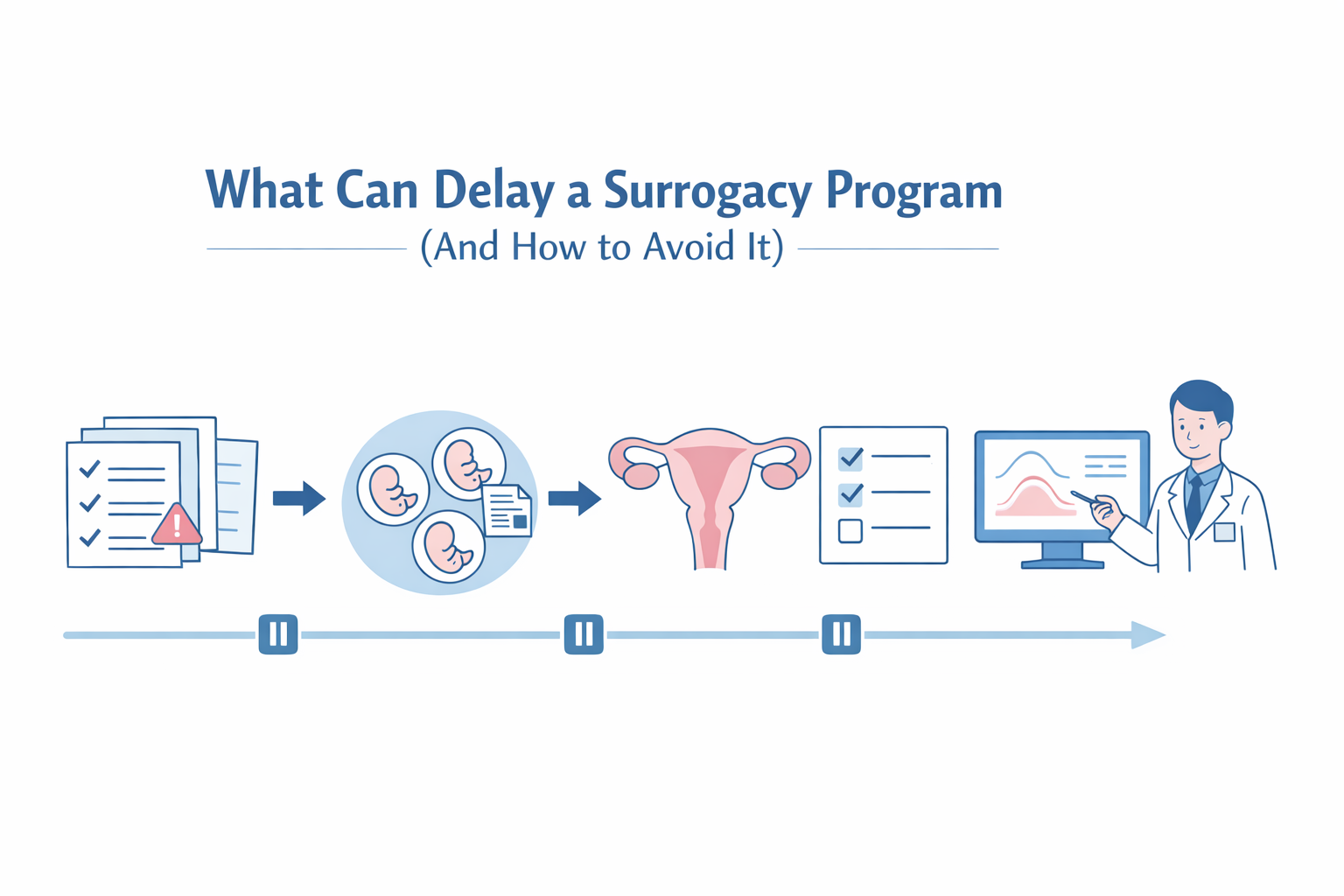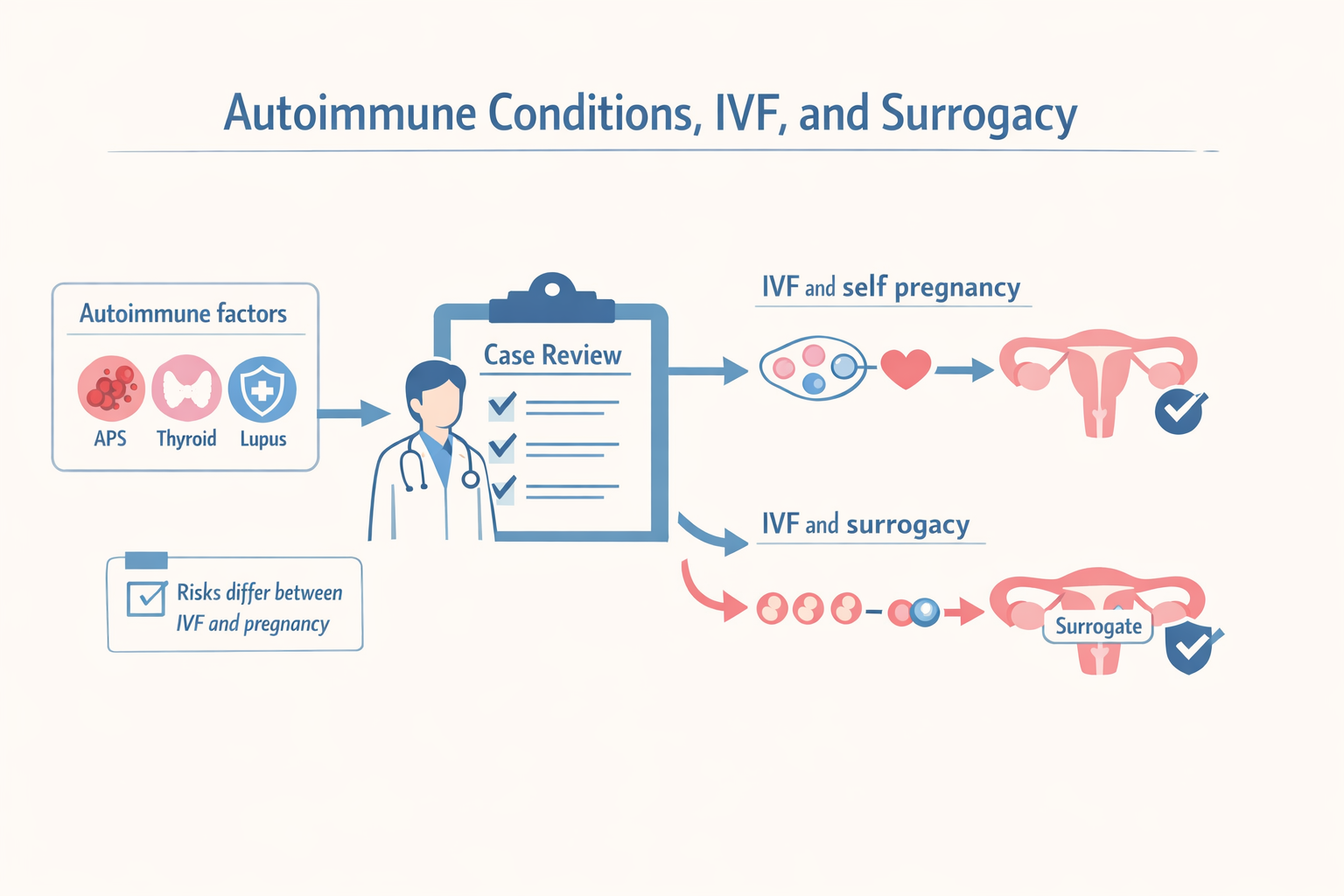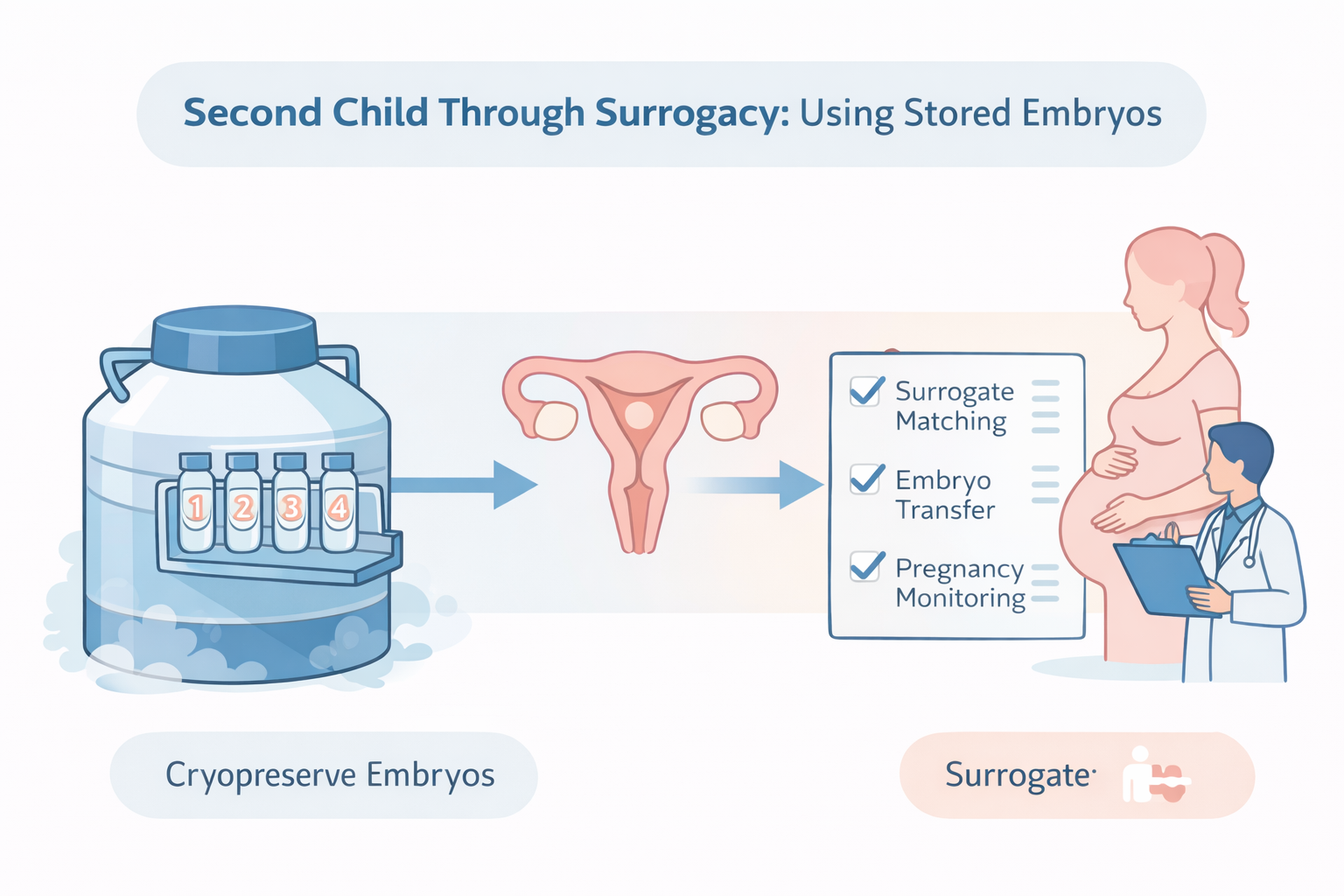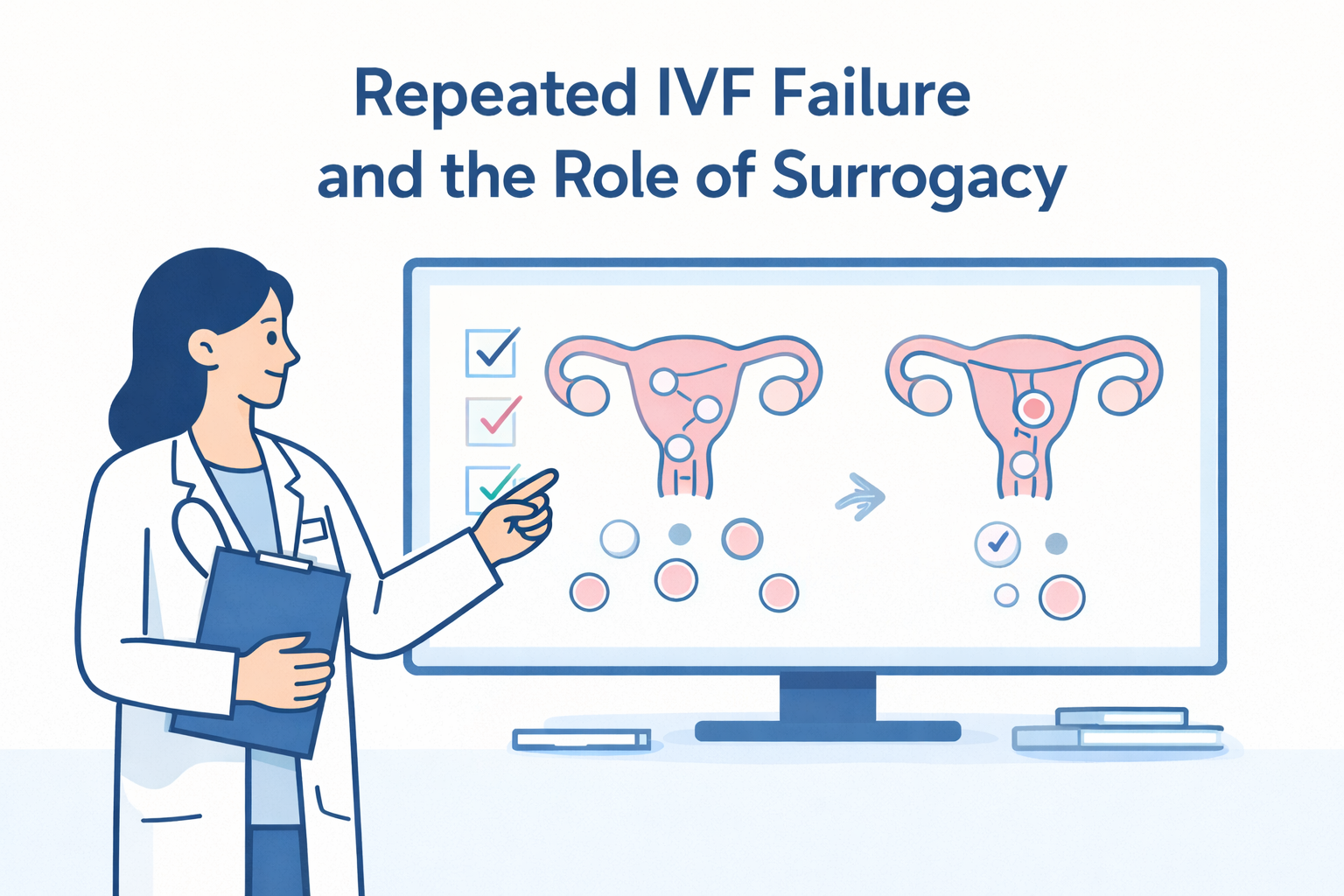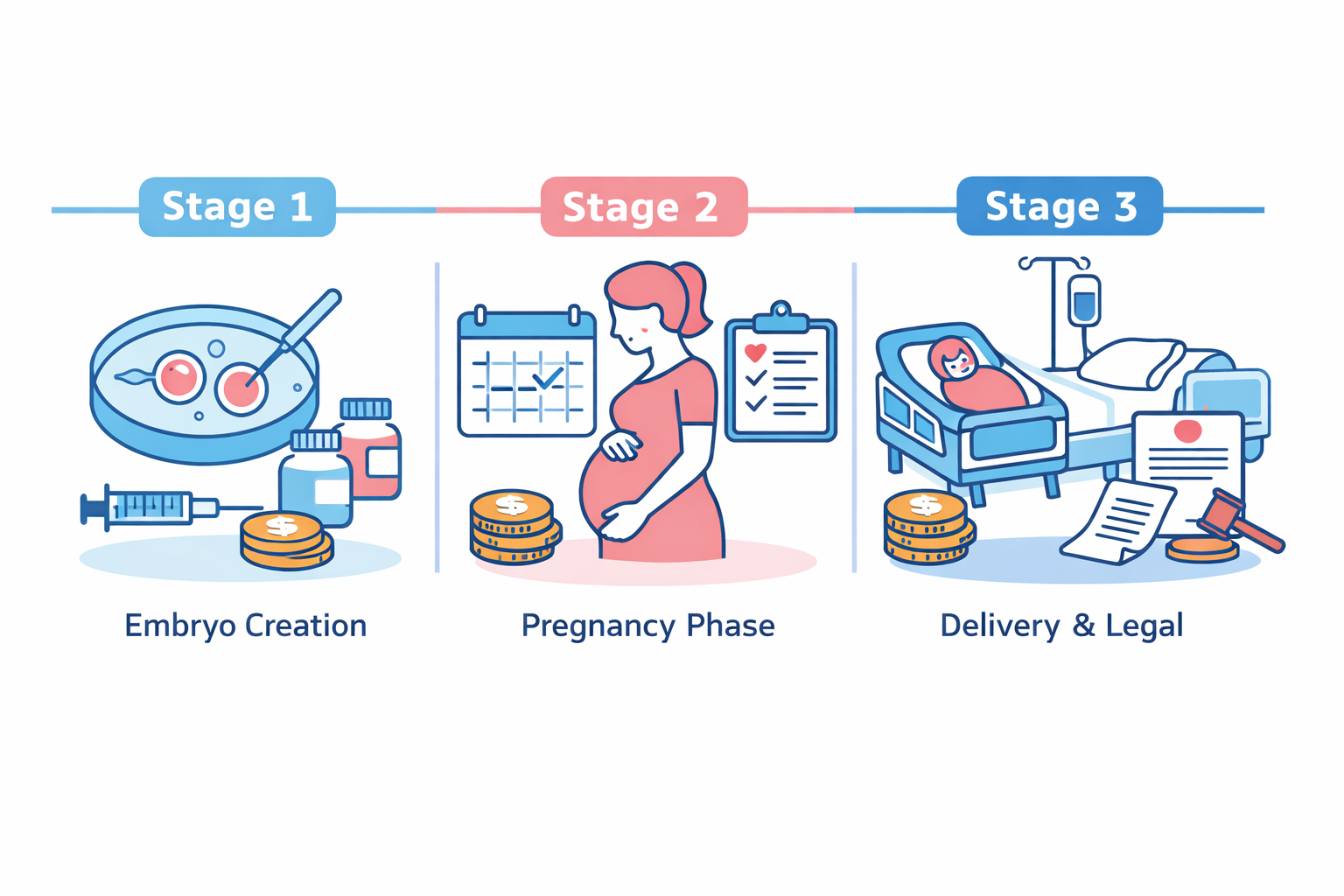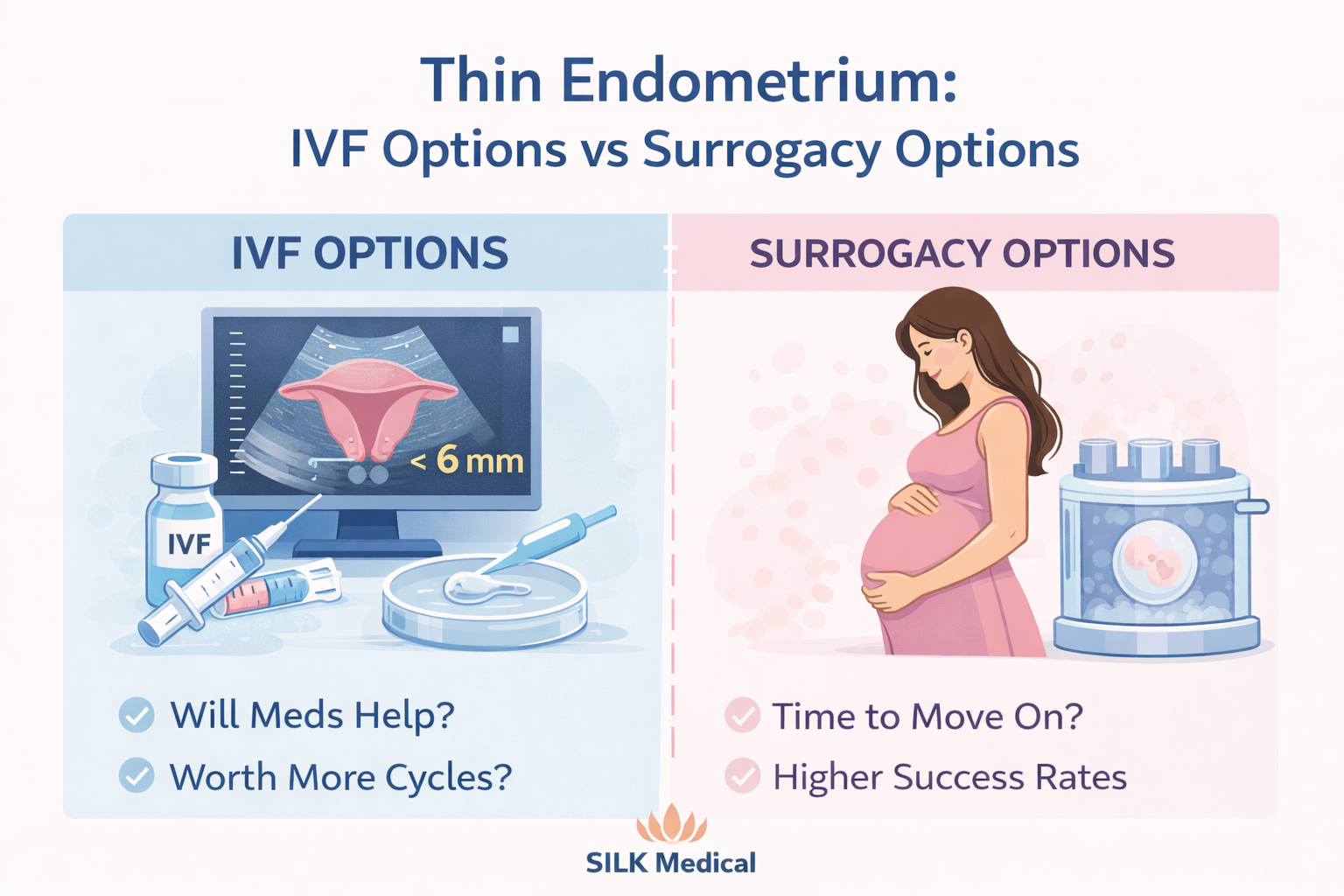Semen Analysis (Spermogram)
When a couple is facing difficulty conceiving, it is often necessary to evaluate both partners’ reproductive health. While much attention is focused on female fertility, male factors can also seriously impact a couple’s ability to achieve pregnancy. SILK Medical’s specialists use a comprehensive approach to fertility assessment, which includes an examination of male reproductive potential through semen analysis.
A semen analysis, also known as spermogram, is a diagnostic tool that provides insights into various aspects of sperm viability. This non-invasive test examines the quality, quantity, and motility of sperm, helping the clinic’s fertility doctors identify potential issues that may contribute to a couple’s infertility.

Reasons for Conducting Semen Analysis
Suspected Infertility:
If a couple has been trying to conceive for an extended period without success, a spermogram can help determine if male factors are playing a role.
Preparation for IVF:
Before beginning an IVF cycle, a spermogram is performed to assess the quality of the sperm and guide treatment decisions.
Sperm Storage:
Men who plan to undergo medical treatments that may affect their fertility, such as chemotherapy, may choose to have their sperm analyzed and stored for future use.
General Health Assessment:
Even if a couple is not currently experiencing infertility, a spermogram can be part of a general reproductive health examination when planning for pregnancy.
SILK Medical’s laboratory is equipped with advanced technology to perform semen analyses. The clinic’s experienced andrologists and fertility specialists work together to assess the results and develop personalized treatment plans based on each couple’s needs.
SILK Medical Semen Analysis
SILK Medical specialists recommend a spermogram as the first step in evaluating male fertility, whether a couple is actively trying to conceive or planning for a future pregnancy. This analysis provides information about the male partner’s reproductive health and can help identify potential factors contributing to infertility.
The results of a spermogram are considered relevant for six months. At SILK Medical, the analysis can be performed efficiently, allowing patients to receive timely results and recommendations. Based on the findings, the clinic’s doctors will provide guidance and, if necessary, prescribe an appropriate course of treatment.
Full Semen Examination Includes:
- Spermogram According to WHO standards:
This basic semen analysis determines the volume and viscosity of the ejaculate, sperm concentration and motility, agglutination (clumping of sperm), and the presence of any extraneous impurities. These parameters are evaluated against the World Health Organization's established criteria for normal semen characteristics. - Kruger Morphology:
This assessment focuses on the structure and shape of individual spermatozoa, identifying any abnormalities in the head, neck, or tail regions. For optimal fertility, at least 4% of the sperm cells in the ejaculate should be free of defects. If the percentage of normal sperm falls below this threshold, conception may only be possible through assisted reproductive techniques such as in vitro fertilization (IVF). - MAR-test (Mixed Agglutination Reaction):
This test is performed to detect the presence of antisperm antibodies (ASA) in the semen. ASAs can cause sperm to clump together, impairing their ability to fertilize an egg. By identifying the presence of ASAs, the MAR-test can help exclude immunologic factors as a potential cause of infertility.
The semen analysis offered at SILK Medical provides full evaluation of male fertility, giving patients all the necessary data to make informed decisions about the future course of action. If concerns arise based on the results of the spermogram, SILK Medical’s specialists can assist with personalized guidance and treatment options for each patient’s unique needs.
Sperm DNA Fragmentation Analysis
The head of a spermatozoon contains the nucleus, which holds the genetic information encoded in DNA molecules. The integrity of these molecules can be compromised when breaks occur in the DNA strands, a process known as sperm DNA fragmentation. This fragmentation can significantly impact the sperm’s ability to fertilize an egg and support healthy embryo development.
Notably, sperm DNA fragmentation cannot be detected through a standard spermogram; instead, a specialized test is required to assess the extent of DNA damage in the sperm.
Indications for sperm DNA fragmentation analysis include:
Male Partner Age Over 40 Years Old
Advanced paternal age is associated with increased sperm DNA fragmentation.
Unexplained Infertility
When no clear cause for infertility is identified, sperm DNA fragmentation may be a contributing factor.
Repeated Unsuccessful IVF Attempts
High levels of sperm DNA fragmentation can lead to poor IVF outcomes.
Recurrent Miscarriages or Frozen Pregnancies
Sperm DNA damage may increase the risk of pregnancy loss.
Overweight Male Partner
Obesity in men has been linked to higher rates of sperm DNA fragmentation.
Exposure to Stress or Presence of Chronic Diseases
Both psychological stress and chronic health conditions can negatively impact sperm DNA integrity.
The sperm DNA fragmentation test produces a DNA Fragmentation Index (DFI), which represents the percentage of sperm cells with damaged DNA. In a normal semen sample, the proportion of spermatozoa with DNA strand breaks should be no more than 15%.
When the DFI exceeds this threshold, it can have significant implications for a couple’s fertility. Elevated levels of sperm DNA fragmentation have been associated with lower fertilization rates, impaired embryo development, and an increased risk of miscarriage.
If a high degree of sperm DNA fragmentation is detected, SILK Medical’s fertility specialists can recommend appropriate treatment options to optimize the chances of successful conception. This may involve lifestyle modifications, targeted nutritional supplementation, or advanced reproductive techniques such as intracytoplasmic sperm injection (ICSI) to select the healthiest sperm for fertilization.
Preparing for Semen Analysis
To ensure the accuracy and reliability of semen analysis results, patients are advised to follow these guidelines:
Sexual Abstinence:
Sexual intercourse or masturbation should be avoided for 3-5 days prior to the semen analysis. This allows for optimal sperm concentration and quality.
Avoiding Alcohol Consumption:
Alcohol consumption should be stopped at least seven days before the analysis, as alcohol can negatively impact sperm production and function.
Preventing Overheating:
Activities that can increase scrotal temperature, such as using saunas, hot tubs, or taking hot baths, should be avoided for at least a week before the test. Elevated temperatures can impair sperm production
Disclosing Medication Use:
The doctor should be informed if the male partner is currently taking any medications, particularly antibiotics or other drugs that may affect sperm quality. The doctor can advise on whether to temporarily discontinue the medication or adjust the timing of the analysis.
Minimize Stress:
While it may not always be possible, stressful situations and excessive physical or mental strain should be avoided in the days leading up to the semen analysis. Stress can interfere with sperm production and quality.
Addressing Abnormal Semen Analysis Results
When a semen analysis reveals abnormalities, SILK Medical specialists will identify the underlying causes and develop an appropriate treatment plan. Common factors contributing to abnormal spermogram results include infections, the history of high fevers, weight issues, and endocrine disorders.
Based on the specific diagnosis, SILK Medical’s urologist-andrologist will prescribe additional examinations and recommend a personal treatment approach. The clinic’s doctors have experience in preparing men for IVF programs and can offer both medical and surgical interventions to address male fertility issues.
Pharmacological treatment options may include antibiotics for infections, hormonal medications for endocrine imbalances, or targeted supplements to improve sperm quality. In some cases, limited surgical procedures may be necessary to retrieve healthy sperm for use in assisted reproductive technologies.
While azoospermia, the complete absence of sperm in the ejaculate, is a relatively rare condition, even this condition can be treated at SILK Medical clinic.
The clinic’s comprehensive approach to male fertility treatment involves close collaboration between urologists, andrologists, and reproductive endocrinologists. This multidisciplinary team works together to develop personalized treatment strategies that optimize each patient’s chances of success.
If you have received abnormal semen analysis results, remember that there are many treatment options available. By partnering with SILK Medical specialists, you can take proactive steps towards overcoming male fertility issues and achieving your dream of building a family.
SILK Medical IVF Experts














